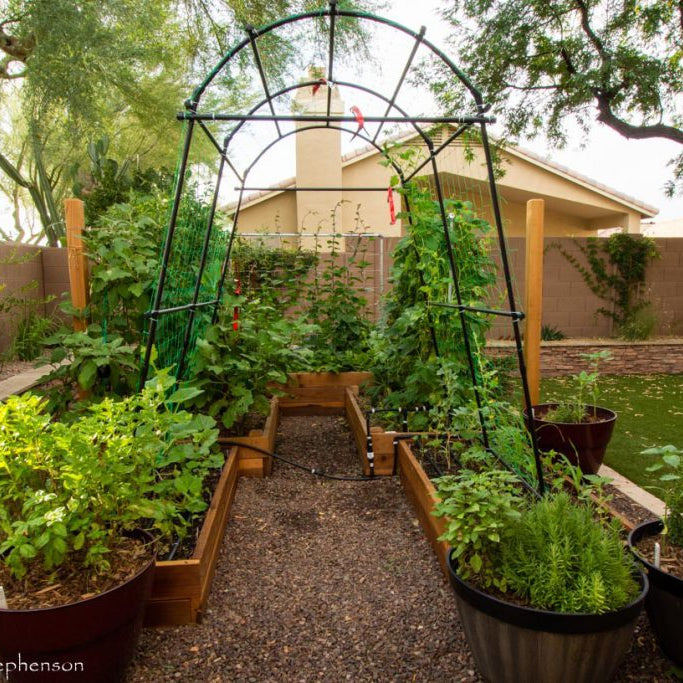

This is how you can save the bees that feed the world
Bees play an essential role in the natural world. Besides providing us with the sweet, golden nectar that is honey, the bees also play a major part in pollinating the flowers.
They are nature's best pollinators and a single colony pollinate around 300 million flowers in a day. That 's where the saying Busy as a bee originated from.
There are more than 20,000 species of bees with the honeybee, bumblebee, stingless bees being more common, with around 719 species of bees in India, with around 300 of them being endemic.
When the agriculture and flora researchers mention pollinators, bees take a majority to themselves. They are mainly responsible for ensuring that pollen is transferred from a male to a female flower and vice versa.
Bees are responsible for pollinating around 55 million hectares of the 160 million hectares of cropped land for agriculture in India.
This means that if we continue losing bees, India 's food production would fall to 1/3 of its present production. This would, directly and indirectly, affect the Indian economy as well as our daily lives.
In India, since 2002, farmers have noticed a significant drop in the number of bees that visit their fields. In the US, nearly 40% of commercial bees had died off, not counting the bees that survive in the wild.
In India, More and more research teams are finding out that there is a significant drastic shortage of bee colonies in the wild. Where hundreds of hives would be found, nowadays they have dropped to two-digit numbers.
One of the main causes of the loss in bees is attributed to the vastly commercially used pesticides, herbicides in agriculture. Researchers have found that around 20% of honey produced contains small traces of pesticide.
A study research team found out that glyphosate, a widely used herbicide and holds the number 1 spot in herbicide, is mainly responsible for the killing of bees since the 1990s. still being widely used today by farmers, it is slowly killing and decimating the colonies of bees in the wild and those that are commercially grown as well.
Plant more and more flowering plants-
Another major factor is the loss of habitat. There has been a serious increase in tree felling both legal and illegal, especially in urban cities. Trees are illegally cut down and then transported to western countries.
This has directly and indirectly impacted on the bee population in India. Trees that provided shade and protected the flowers from the hot direct sun were no longer present. This leads to the flowers being unable to withstand the hot sun and dying in droves.
Say no to chemical pesticides-
Bees and other pollinators are continuously exposed to a deadly cocktail of chemicals that weaken their immune systems and make them more susceptible to disease.
This is why the majority of environmental groups in India and around the world are promoting the usage of Organic Fertilizers. Studies in India have shown that Farmlands with less commercial pesticides have a greater diversity of bees.
Another study showed that commercial pesticides and herbicides deprive the bees of their sense of smell on which the bees are highly dependent on to find their way back home, this in turn leads to starvation of the stranded and lost bees and eventually leads to a collapse of the colony of bees.
Organic fertilizers have shown a significant decrease in such impacts. Using compost and natural manure has shown a significant increase in the presence of bees in the land.
For Example, Sikkim which has banned the use of commercially produced fertilizers and pesticides as well as herbicides, there has been a compelling increase in the diversity of bees that are endemic to the area.
Urban bee-keeping
Bee Basket, a business extricating beehives from neighborhoods, relocates the beehives to wooded areas and farmlands and even donates them to the local beekeepers.
Environmental groups suggest that planting of indigenous, native plants and trees in the neighborhood would go a long way in helping bees profligate.
Planting Flowering species and vegetables in your window grills and balconies would also be a step towards conservation of bees.
 Bee basket owner Mr. Godse recommends that urban bee-keeping is also a way to help conserve their pollination ways. He says that keeping sting less bees in urban settings and promoting it as a hobby will have a huge impact on bee conservation.
Bee basket owner Mr. Godse recommends that urban bee-keeping is also a way to help conserve their pollination ways. He says that keeping sting less bees in urban settings and promoting it as a hobby will have a huge impact on bee conservation.
The bees will collect nectar from trees within a two-three kilometers radius and return to your house. Youll have a hobby, and theyll help in pollination.
Plant more in your neighborhood-
Another way of conservation is to help protect the local trees present in the neighborhood, the preservation of the existing green space and creating awareness among people about bees and their significance and bring a change to their perception of the bees will help convert society 's view of bees from stinging pests to helpful allies in bringing about environmental change.
You can support to protect these crucial creations for establishing a balance in our ecosystem. Spread awareness for these vital elements and do your bit responsibly and dutifully for the existence of one and all.
Related Products
You may like this Collection
-
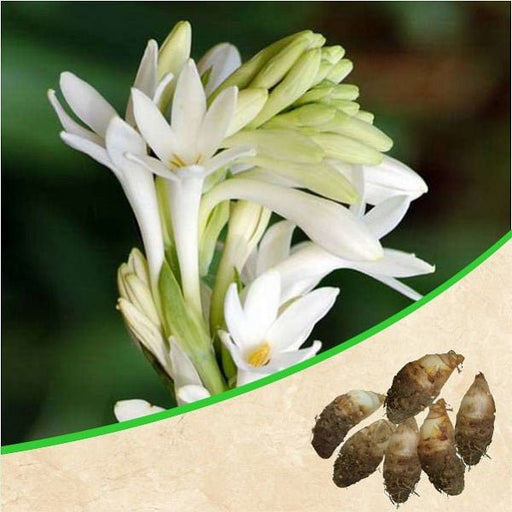 Original price ₹ 159Original price ₹ 159₹ 159₹ 159Current price ₹ 159
Original price ₹ 159Original price ₹ 159₹ 159₹ 159Current price ₹ 159Rajnigandha, Tuberose - Bulbs (set of 10)
Rajnigandha, Tuberose - Bulbs (Set of 10) Experience the enchanting fragrance of Rajnigandha, also known as Tuberose, with this set of 10 ...
View full detailsOriginal price ₹ 159Original price ₹ 159₹ 159₹ 159Current price ₹ 159 -
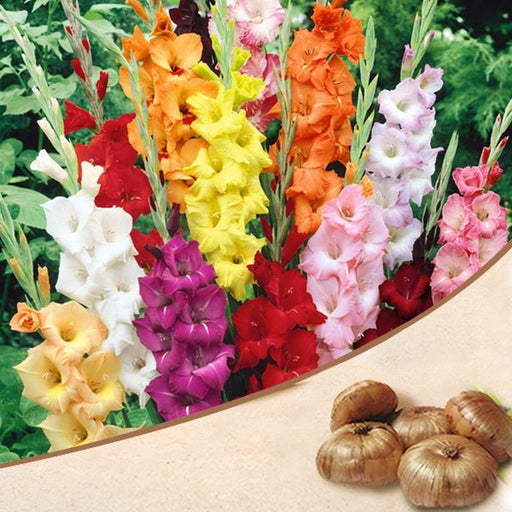 Save 20%
Original price ₹ 249Original price ₹ 249Original price ₹ 249Current price ₹ 199₹ 199Current price ₹ 199
Save 20%
Original price ₹ 249Original price ₹ 249Original price ₹ 249Current price ₹ 199₹ 199Current price ₹ 199Gladiolus (Random color) - Bulbs (set of 10)
Gladiolus (Random Color) - Bulbs (Set of 10) Transform your garden into a vibrant spectacle with our Gladiolus bulbs, available in a delig...
View full detailsOriginal price ₹ 249Original price ₹ 249Original price ₹ 249Current price ₹ 199₹ 199Current price ₹ 199Save 20% -
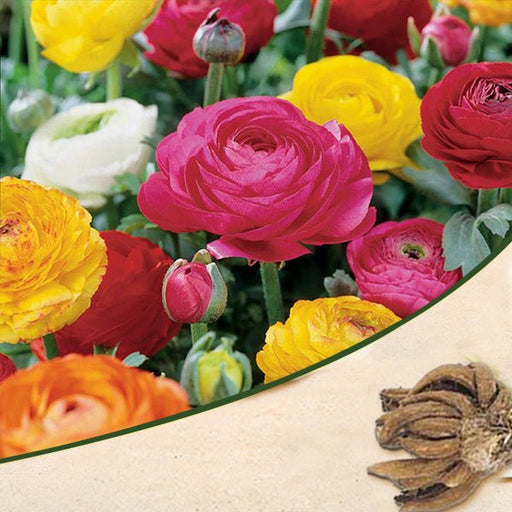 Sold out
Original price ₹ 284Original price ₹ 284Original price ₹ 284₹ 199₹ 199Current price ₹ 199
Sold out
Original price ₹ 284Original price ₹ 284Original price ₹ 284₹ 199₹ 199Current price ₹ 199Ranunculus (Random Color) - Bulbs
Ranunculus (Random Color) - Bulbs Transform your garden into a vibrant tapestry of colors with our Ranunculus bulbs. Known for their stunn...
View full detailsOriginal price ₹ 284Original price ₹ 284Original price ₹ 284₹ 199₹ 199Current price ₹ 199Sold out -
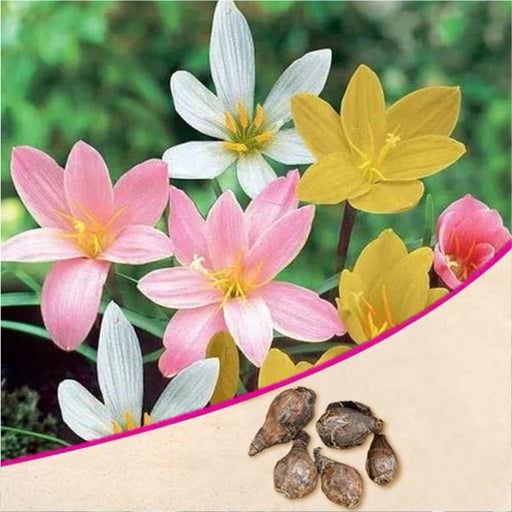 Original price ₹ 159Original price ₹ 159₹ 159₹ 159Current price ₹ 159
Original price ₹ 159Original price ₹ 159₹ 159₹ 159Current price ₹ 159Zephyranthes Lily, Rain Lily (Random color) - Bulbs (set of 10)
Zephyranthes Lily, Rain Lily (Random Color) - Bulbs (Set of 10) Transform your garden into a vibrant oasis with our Zephyranthes Lily, com...
View full detailsOriginal price ₹ 159Original price ₹ 159₹ 159₹ 159Current price ₹ 159 -
View all Collection
Related Collections
Best Sellers
-
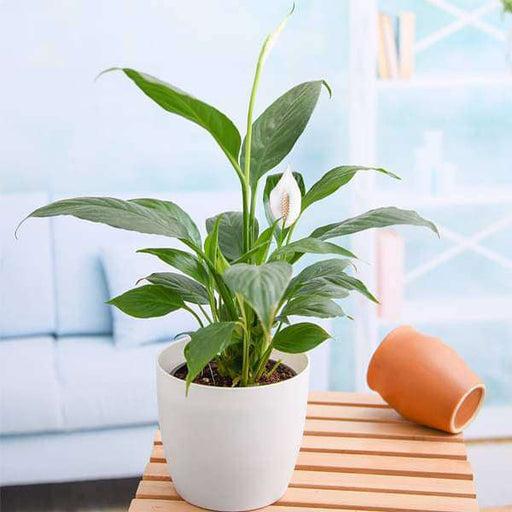
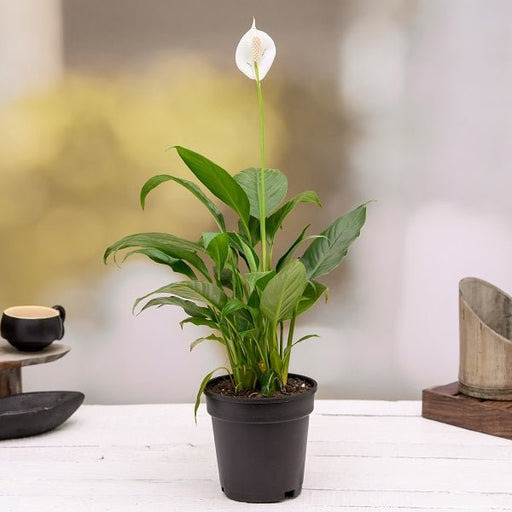 Save up to 15%
Original price ₹ 249Original price ₹ 249Original price ₹ 249₹ 199₹ 199Current price ₹ 199
Save up to 15%
Original price ₹ 249Original price ₹ 249Original price ₹ 249₹ 199₹ 199Current price ₹ 199Peace Lily, Spathiphyllum - Plant
Peace Lily, Spathiphyllum - Plant The Peace Lily, scientifically known as Spathiphyllum, is a stunning houseplant celebrated for its elegant white...
View full detailsOriginal price ₹ 249Original price ₹ 249Original price ₹ 249₹ 199₹ 199Current price ₹ 199Save up to 15% -

 Save 18%
Original price ₹ 439Original price ₹ 439Original price ₹ 439Current price ₹ 359₹ 359Current price ₹ 359
Save 18%
Original price ₹ 439Original price ₹ 439Original price ₹ 439Current price ₹ 359₹ 359Current price ₹ 359Parijat Tree, Parijatak, Night Flowering Jasmine - Plant
Combo Constituents Includes the Parijat Tree (Night-Flowering Jasmine), a culturally significant plant with fragrant flowers. Description The Pari...
View full detailsOriginal price ₹ 439Original price ₹ 439Original price ₹ 439Current price ₹ 359₹ 359Current price ₹ 359Save 18% -
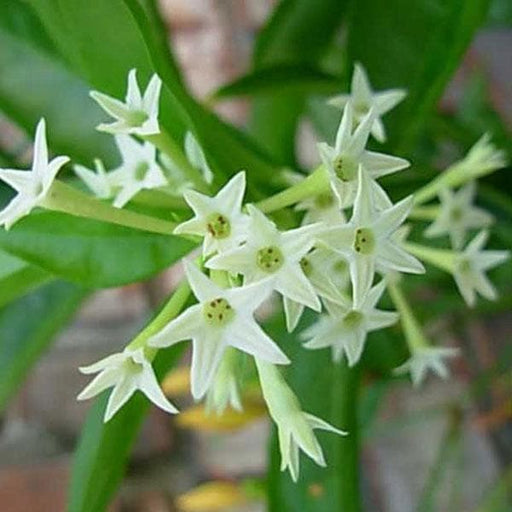
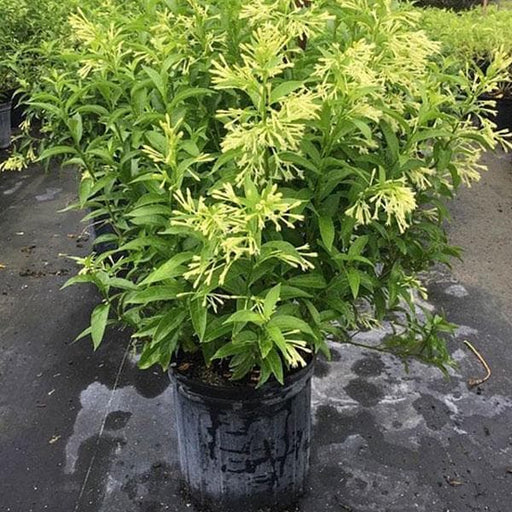 Save 25%
Original price ₹ 399Original price ₹ 399Original price ₹ 399Current price ₹ 299₹ 299Current price ₹ 299
Save 25%
Original price ₹ 399Original price ₹ 399Original price ₹ 399Current price ₹ 299₹ 299Current price ₹ 299Raat Ki Rani, Raat Rani, Night Blooming Jasmine - Plant
Description Raat Ki Rani (*Cestrum nocturnum*), also known as Night Blooming Jasmine, is a fragrant shrub native to the Caribbean and Central Ameri...
View full detailsOriginal price ₹ 399Original price ₹ 399Original price ₹ 399Current price ₹ 299₹ 299Current price ₹ 299Save 25% -

 Save 25%
Original price ₹ 399Original price ₹ 399Original price ₹ 399Current price ₹ 299₹ 299Current price ₹ 299
Save 25%
Original price ₹ 399Original price ₹ 399Original price ₹ 399Current price ₹ 299₹ 299Current price ₹ 299Jasminum sambac, Mogra, Arabian Jasmine - Plant
Jasminum sambac, Mogra, Arabian Jasmine - Plant Jasminum sambac, commonly known as Mogra or Arabian Jasmine, is a fragrant flowering plant...
View full detailsOriginal price ₹ 399Original price ₹ 399Original price ₹ 399Current price ₹ 299₹ 299Current price ₹ 299Save 25% -
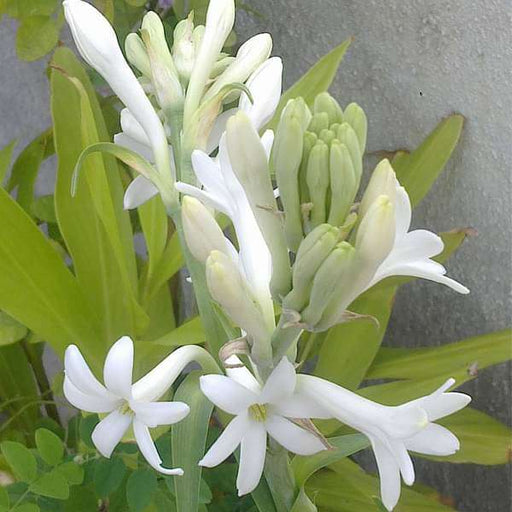
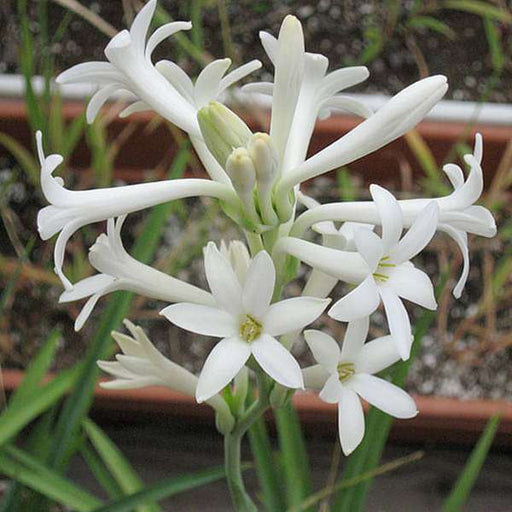 Save 17%
Original price ₹ 299Original price ₹ 299Original price ₹ 299Current price ₹ 249₹ 249Current price ₹ 249
Save 17%
Original price ₹ 299Original price ₹ 299Original price ₹ 299Current price ₹ 249₹ 249Current price ₹ 249Rajnigandha, Tuberose - Plant
Rajnigandha, Tuberose - Plant The Rajnigandha, scientifically known as Polianthes tuberosa, is a captivating perennial plant renowned for ...
View full detailsOriginal price ₹ 299Original price ₹ 299Original price ₹ 299Current price ₹ 249₹ 249Current price ₹ 249Save 17% -
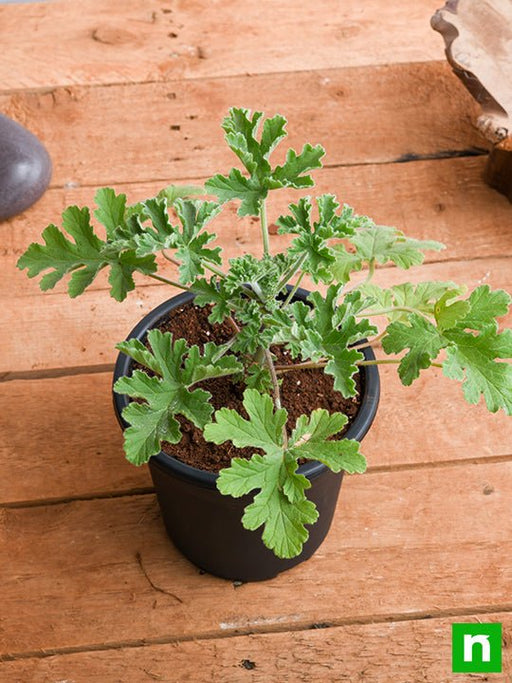
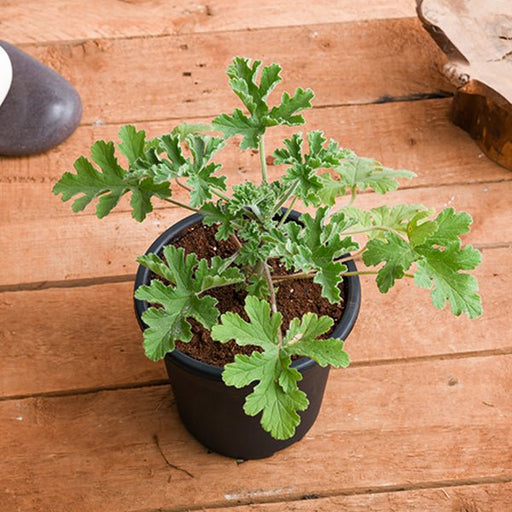 Sold out
Original price ₹ 298Original price ₹ 298Original price ₹ 298Current price ₹ 259₹ 259Current price ₹ 259
Sold out
Original price ₹ 298Original price ₹ 298Original price ₹ 298Current price ₹ 259₹ 259Current price ₹ 259Citronella, Odomas - Plant
Citronella, Odomas - Plant The Citronella plant, scientifically known as Cymbopogon nardus, is a tropical grass renowned for its aromatic ...
View full detailsOriginal price ₹ 298Original price ₹ 298Original price ₹ 298Current price ₹ 259₹ 259Current price ₹ 259Sold out -
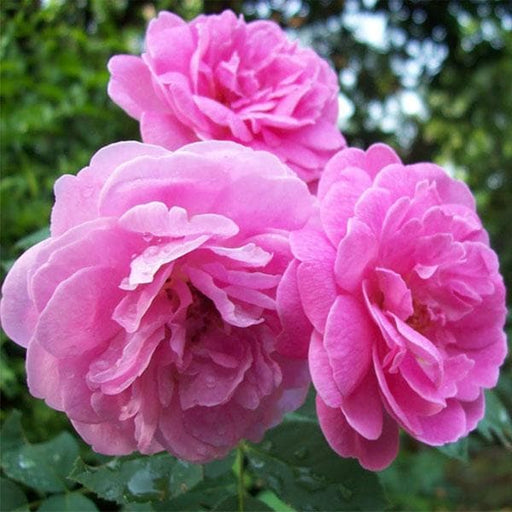 Save 25%
Original price ₹ 399Original price ₹ 399Original price ₹ 399Current price ₹ 299₹ 299Current price ₹ 299
Save 25%
Original price ₹ 399Original price ₹ 399Original price ₹ 399Current price ₹ 299₹ 299Current price ₹ 299Damascus Rose, Scented Rose (Any Color) - Plant
Damascus Rose, Scented Rose (Any Color) - Plant The Damascus Rose, also known as Rosa damascena, is a timeless symbol of beauty and romanc...
View full detailsOriginal price ₹ 399Original price ₹ 399Original price ₹ 399Current price ₹ 299₹ 299Current price ₹ 299Save 25% -
View all Collection
Save 50% with Packs
-

 Save 35%
Original price ₹ 1,739Original price ₹ 1,739Original price ₹ 1,739Current price ₹ 1,130₹ 1,130Current price ₹ 1,130
Save 35%
Original price ₹ 1,739Original price ₹ 1,739Original price ₹ 1,739Current price ₹ 1,130₹ 1,130Current price ₹ 1,130Best 6 Plants for Perfect Indoor Garden
Best 6 Plants for Perfect Indoor Garden Transform your living space into a lush oasis with our curated collection of the Best 6 Plants for a...
View full detailsOriginal price ₹ 1,739Original price ₹ 1,739Original price ₹ 1,739Current price ₹ 1,130₹ 1,130Current price ₹ 1,130Save 35% -

 Save up to 50%
Original price ₹ 829Original price ₹ 829Original price ₹ 829₹ 499₹ 499Current price ₹ 499
Save up to 50%
Original price ₹ 829Original price ₹ 829Original price ₹ 829₹ 499₹ 499Current price ₹ 499Mini Succulent Garden Pack
Mini Succulent Garden Pack Transform your space with our Mini Succulent Garden Pack, featuring a delightful collection of 4 any variety beautiful s...
View full detailsOriginal price ₹ 829Original price ₹ 829Original price ₹ 829₹ 499₹ 499Current price ₹ 499Save up to 50% -

 Save 30%
Original price ₹ 2,142Original price ₹ 2,142Original price ₹ 2,142Current price ₹ 1,499₹ 1,499Current price ₹ 1,499
Save 30%
Original price ₹ 2,142Original price ₹ 2,142Original price ₹ 2,142Current price ₹ 1,499₹ 1,499Current price ₹ 1,4995 Best Fragrant Plants
5 Best Fragrant Plants Transform your garden or indoor space into a fragrant paradise with our curated selection of the 5 Best Fragrant Plants. Th...
View full detailsOriginal price ₹ 2,142Original price ₹ 2,142Original price ₹ 2,142Current price ₹ 1,499₹ 1,499Current price ₹ 1,499Save 30% -

 Save 24%
Original price ₹ 998Original price ₹ 998Original price ₹ 998Current price ₹ 759₹ 759Current price ₹ 759
Save 24%
Original price ₹ 998Original price ₹ 998Original price ₹ 998Current price ₹ 759₹ 759Current price ₹ 759Set of 2 Bonsai Looking Grafted Adeniums
Set of 2 Bonsai Looking Grafted Adeniums Transform your indoor or outdoor space with our exquisite Set of 2 Bonsai Looking Grafted Adenium...
View full detailsOriginal price ₹ 998Original price ₹ 998Original price ₹ 998Current price ₹ 759₹ 759Current price ₹ 759Save 24% -
 Save 45%
Original price ₹ 1,014Original price ₹ 1,014Original price ₹ 1,014Current price ₹ 559₹ 559Current price ₹ 559
Save 45%
Original price ₹ 1,014Original price ₹ 1,014Original price ₹ 1,014Current price ₹ 559₹ 559Current price ₹ 559Top 4 Die Hard Succulents Pack
Top 4 Die Hard Succulents Pack Transform your indoor or outdoor space with our Top 4 Die Hard Succulents Pack, featuring a curated selecti...
View full detailsOriginal price ₹ 1,014Original price ₹ 1,014Original price ₹ 1,014Current price ₹ 559₹ 559Current price ₹ 559Save 45% -

 Save 30%
Original price ₹ 1,905Original price ₹ 1,905Original price ₹ 1,905Current price ₹ 1,334₹ 1,334Current price ₹ 1,334
Save 30%
Original price ₹ 1,905Original price ₹ 1,905Original price ₹ 1,905Current price ₹ 1,334₹ 1,334Current price ₹ 1,3345 Best Indoor Plants Pack
5 Best Indoor Plants Pack Transform your living space into a lush oasis with our '5 Best Indoor Plants Pack.' This carefully curated collection fe...
View full detailsOriginal price ₹ 1,905Original price ₹ 1,905Original price ₹ 1,905Current price ₹ 1,334₹ 1,334Current price ₹ 1,334Save 30% -

 Save 25%
Original price ₹ 1,296Original price ₹ 1,296Original price ₹ 1,296Current price ₹ 972₹ 972Current price ₹ 972
Save 25%
Original price ₹ 1,296Original price ₹ 1,296Original price ₹ 1,296Current price ₹ 972₹ 972Current price ₹ 972Set of 4 Evergreen Air Purifier Plant Pack
Set of 4 Evergreen Air Purifier Plant Pack Transform your indoor space into a lush, green oasis with our Set of 4 Evergreen Air Purifier Pla...
View full detailsOriginal price ₹ 1,296Original price ₹ 1,296Original price ₹ 1,296Current price ₹ 972₹ 972Current price ₹ 972Save 25% -
View all Collection

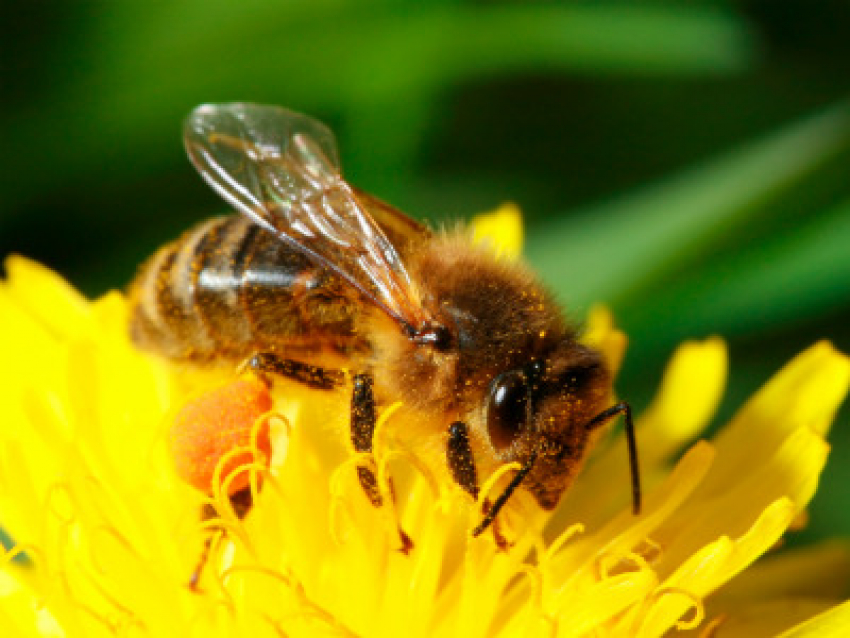




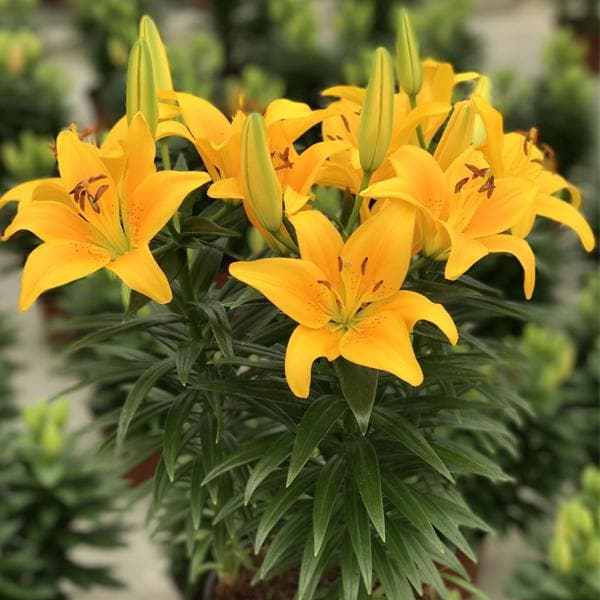
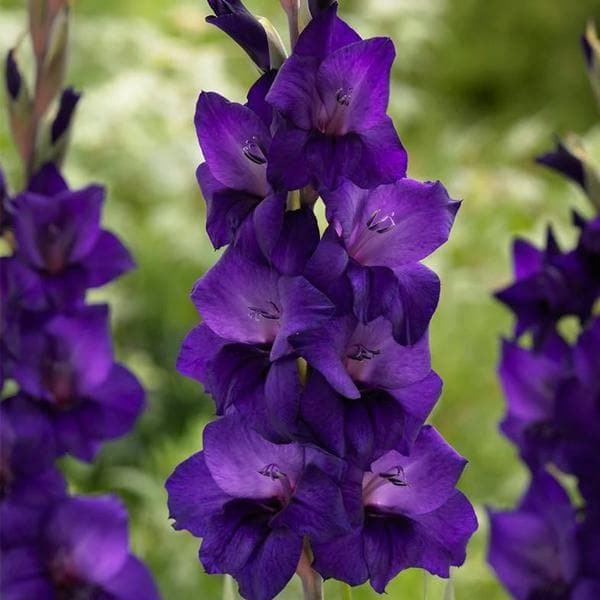
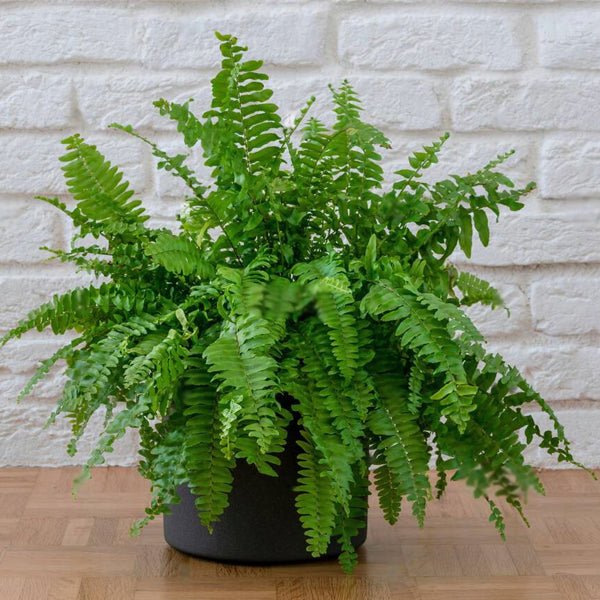





































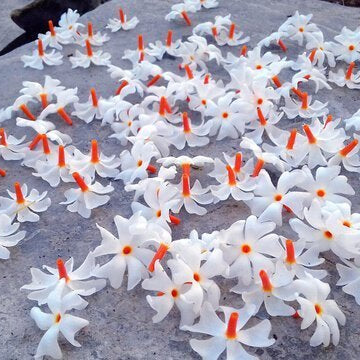
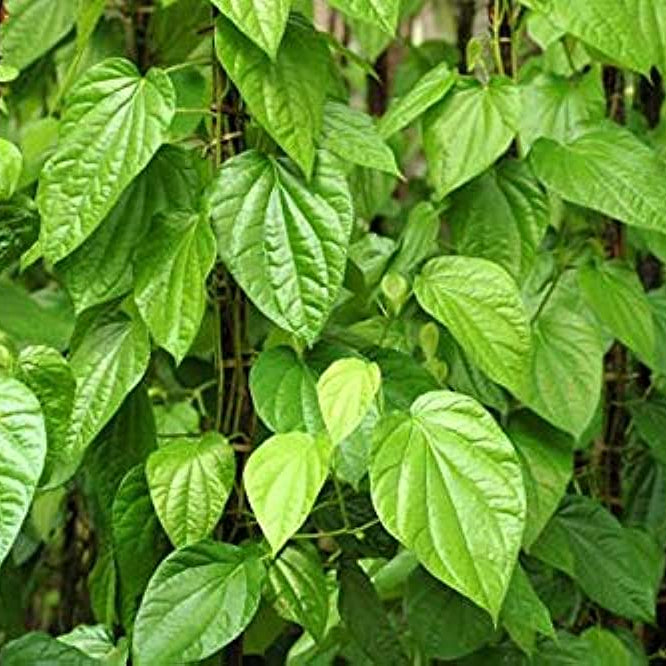








Leave a comment